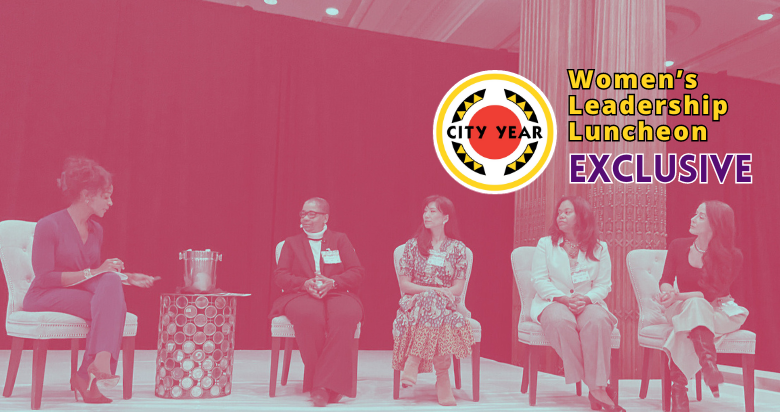City Year Women’s Leadership Luncheon Exclusive: What is Diversity?

Philadelphia is renowned as one of America’s most diverse cities. Despite this, systemic inequality continues to limit economic opportunity and access for all residents. While over half of Philadelphia’s population comprises non-white residents, only 25% of Philadelphia businesses are Black-owned and only 2.5% of those have employees. This baffling inequality is not unique to Philadelphia. Glaring statistics like this are reflective of the modern work landscape across the country.
Last month, Women’s Leadership Today had the privilege of attending City Year Philadelphia’s 9th Annual Women’s Leadership Luncheon, which focused on uplifting the city’s diverse business community. An expert panel, hosted by TaRhonda Thomas, 6abc Action News’s first Race and Culture reporter, discussed the shortcomings of diversity efforts and how we can shift our approach to make a meaningful impact. The panel included women experts and leaders who are uplifting the diverse business community in Philadelphia. This group featured Sheila Alexander-Reid, Executive Director, PHL Diversity, Amanda Chevalier, Executive Board Member, Asian American Chamber of Commerce, and Owner CFI Workspace, Regina A. Hairston, President & CEO, African-American Chamber of Commerce of PA, NJ & DE, and Lorena Plaza, Board Member, Independence Business Alliance, and Vice President of Finance, Independence Blue Cross.
The biggest takeaway? The panelists agreed that diversity alone is insufficient – inclusion is key for effective DBIE (diversity, belonging, inclusion, and equity). As Sheila Alexander-Reid commented, “[Diversity is] different perspectives at the table…the focus should be on inclusion.” Lorena Plaza agreed, adding “Diversity alone doesn’t guarantee inclusion.” In short, it is meaningless to have diverse representatives at the table if their voices are not heard and valued.
The panelists also agreed that focusing on equality as a goal is misguided. As Regina Hairston observed, “It’s not about being equal. We all have to start from where we are to achieve equity.” Solutions should recognize each person’s unique starting point rather than imposing one-size-fits-all equality. Examining individual perspectives is vital when working toward equity.
This relates to another key theme of intersectionality, the concept that all parts of an individual’s identity such as race, ethnicity, gender, sexual orientation, socioeconomic status, etc. do not exist independently but are interconnected. It means recognizing that people have overlapping marginalized and privileged identities that combine to shape their lived experiences, perspectives, and worldviews. The panelists cautioned against compartmentalizing people into discrete demographic boxes and subgroups that would ignore and simplify these complex and unique identities. The panel pointed out that this would call for an expansive conception of diversity, shifting the framework to “DEIAB” – encompassing diversity, equity, inclusion, accessibility, and belonging. Creating welcoming environments where all can participate and thrive should be the goal.
Finally, the panel also agreed that lasting progress requires inspiring and investing in future leaders to advance equality. Education is crucial, as is mentorship between willing participants with shared identity facets and experiences. As Women’s Leadership Luncheon Event Committee Co-Chair Wendy Green Harvey noted, “If students see success, they can achieve success.”
The key takeaway was clear – diversity without inclusion is meaningless. Inclusion requires equity. There needs to be consideration of diverse individual perspectives, not just symbolic group representation. These discussions are so important when it comes to advancing women and other marginalized groups in today’s professional environment. We applaud City Year for hosting this illuminating dialogue and are grateful to have taken part.
About City Year
City Year works to expand educational equity for students furthest from opportunity and develop diverse leaders through national service. Learn more about how we and our partners are reimagining what schools can be for students and the adults who work with them: http://www.cityyear.org/philadelphia, Twitter, Instagram and LinkedIn.